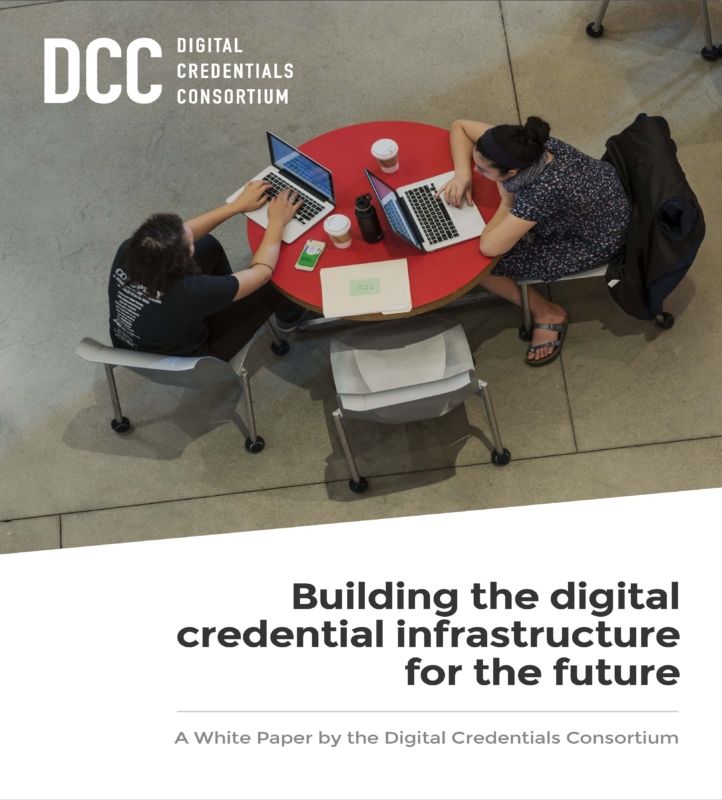Digital Credentials Consortium
Building the Digital Credential Infrastructure For The Future
The mission of the Digital Credentials Consortium (DCC) is to create a trusted, distributed, and shared infrastructure that will become the standard for issuing, storing, displaying, and verifying academic credentials, digitally. The DCC focuses on the learner enabling them to retain primary control over their credentials and allows credentials to be verified without consulting the original issuer or needing to be mediated by vendors.
DCC is focusing on developing crypotographically secure envelopes and the system that provides safe delivery and storage of multiple envelopes—similar to the postal service for mail. Within the envelope is a document, like the diploma a university issued to a graduate, a program certificate, or a granular expression of competencies mastered by a learner.
DCC activities span technical development, implementations at member institutions, leadership in standards bodies W3C Verifiable Credentials for Education Community Group, and community support.
The MIT team is coordinating the activities of the DCC, co-leading the W3C Verifiable Credentials for Education Working Group and developing software and infrastructure to enable a digital credentials future.
For DCC, I support pilots and deployment of the digital credential infrastructure that promote learner control and implement the W3C Verifiable Credentials for Education task group recommendations. I am also product manager for the Learner Credential Wallet, an open source mobile wallet to store learner credentials.
Info
Massachusetts Institute of Technology
MIT Open Learning
2021-present
Key Collaborators: Kim Hamilton Duffy (MIT, Open Learning), Krishna Rajagopal (MIT, Open Learning / Physics), Philipp Schmidt* (MIT, Open Learning / Media Lab), Gillian Walsh* (MIT, Open Learning), Dmitri Zagidulin* (MIT, Consultant)
Funding Source: DCC Consortium Members, MIT, U.S. Department of Education, Walmart


 Source: Brandon Muramatsu
Source: Brandon Muramatsu